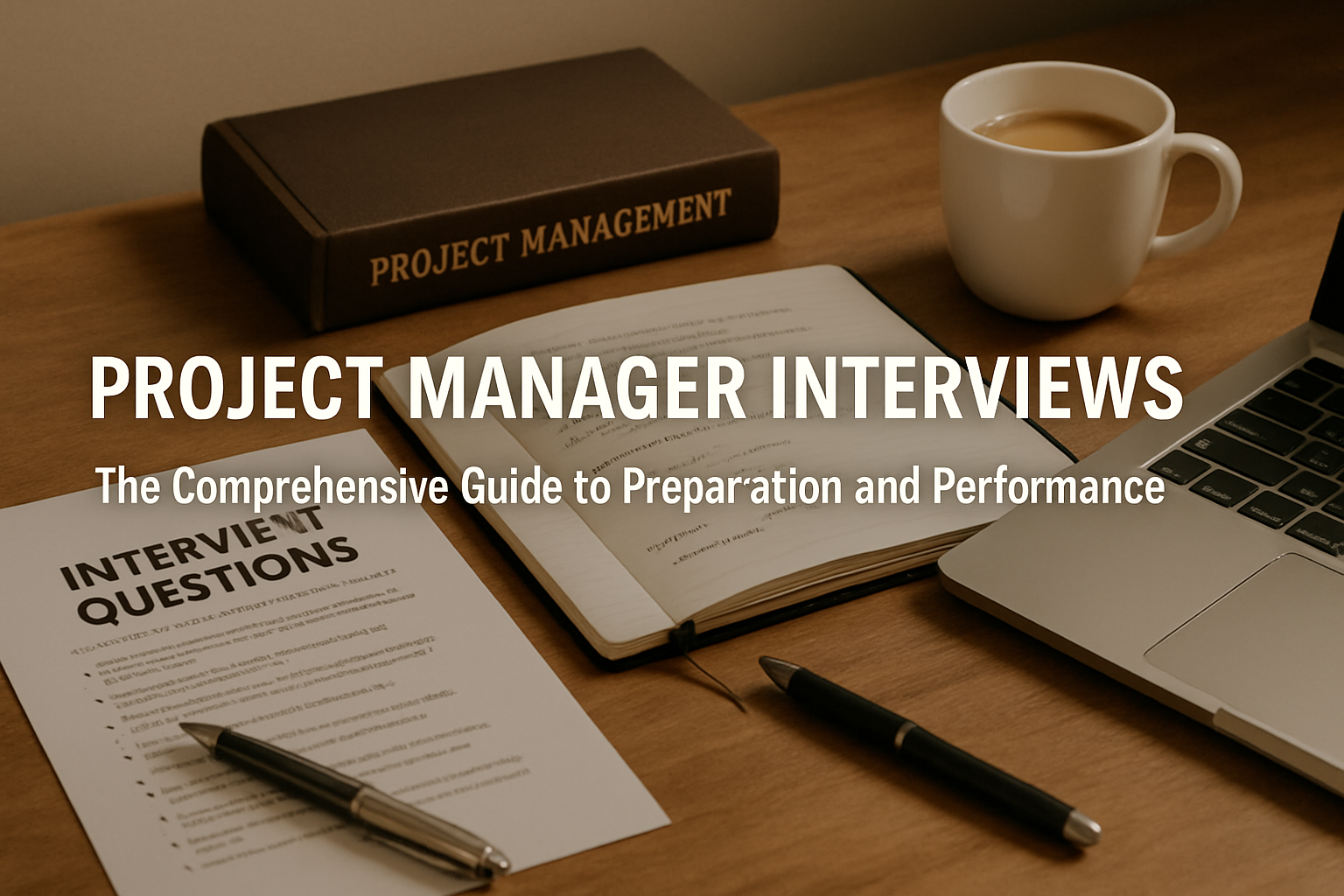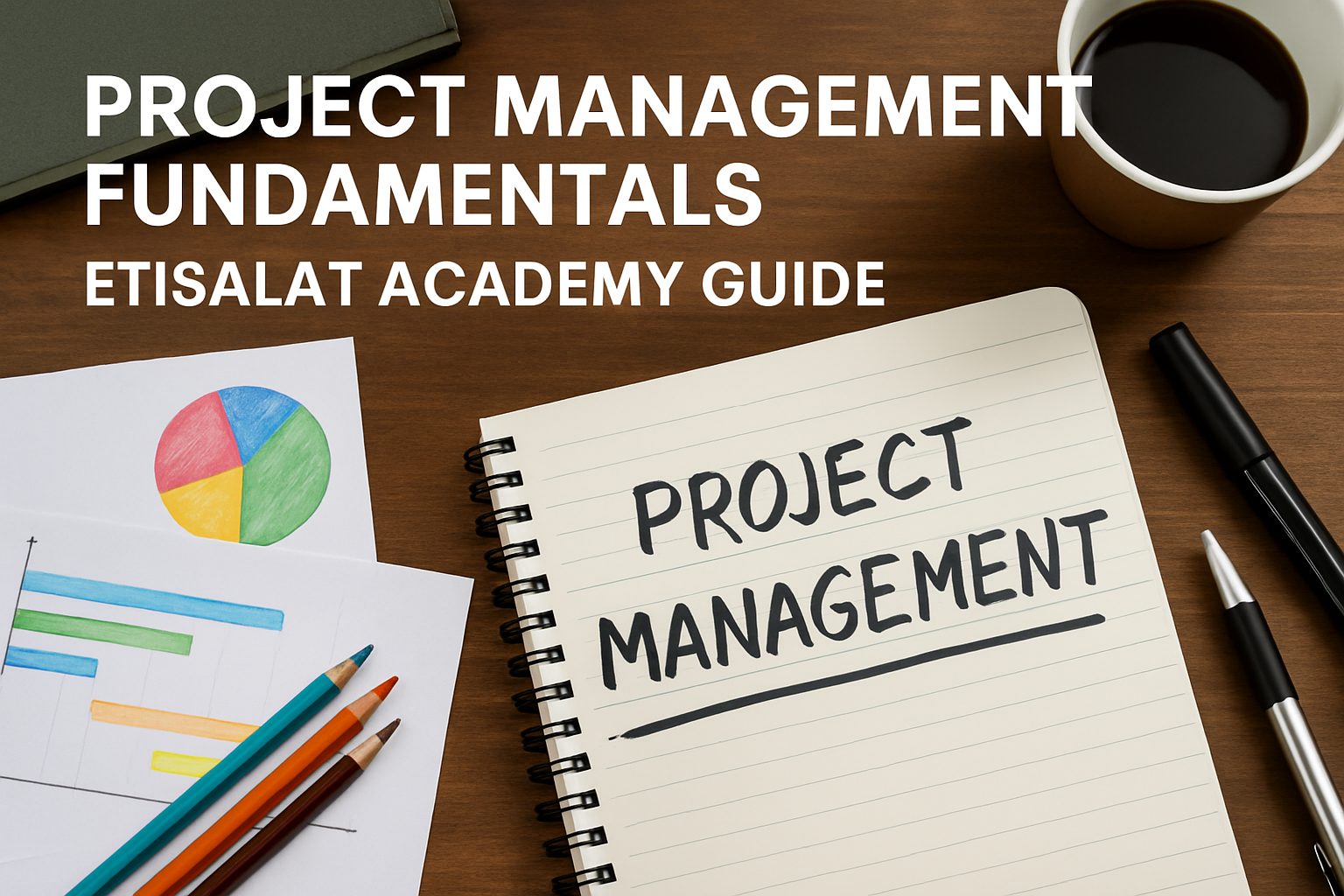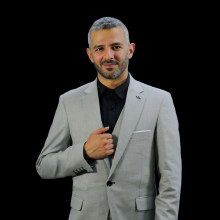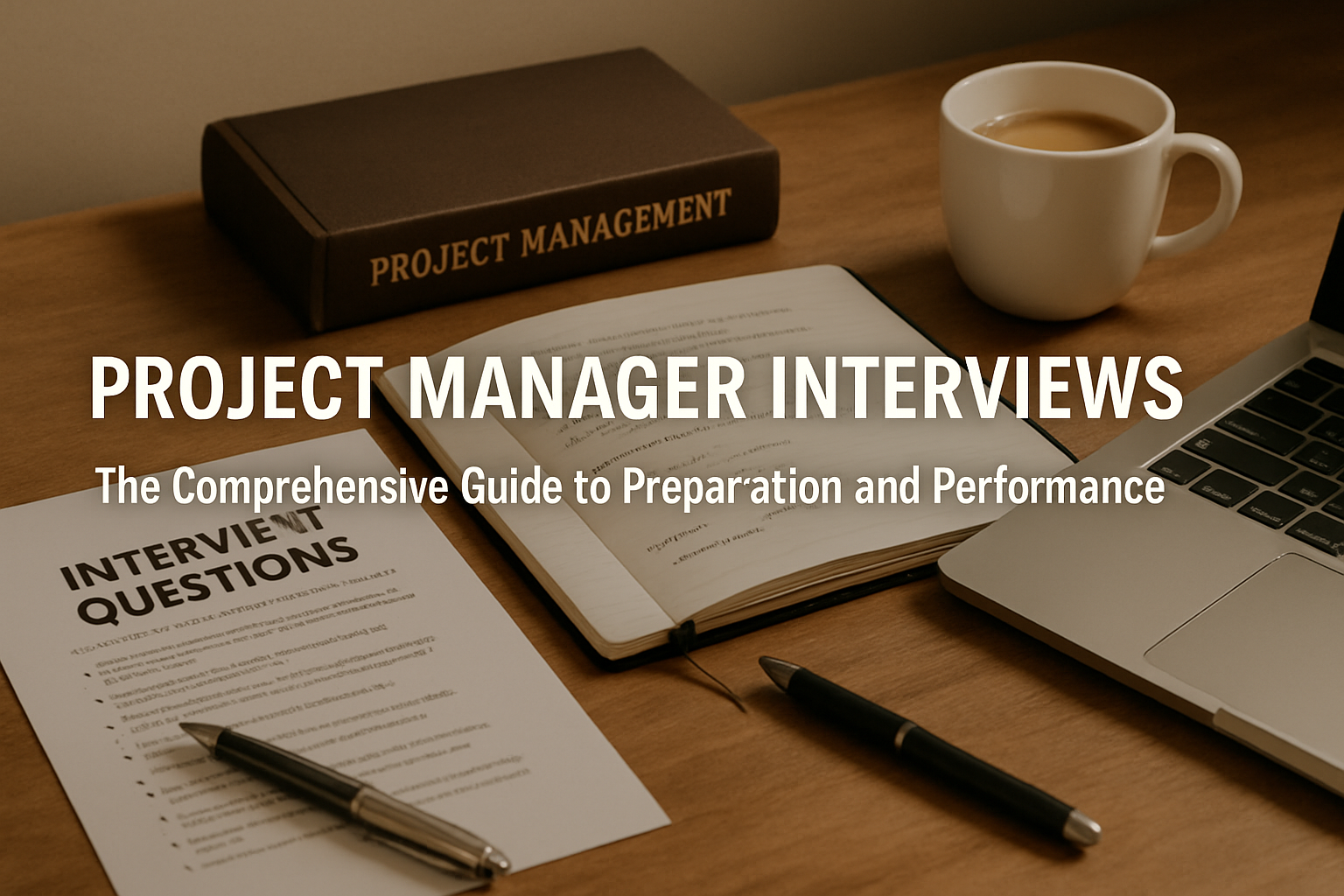Inspirational journeys
Follow the stories of academics and their research expeditions
Project Manager Interviews: The Comprehensive Guide to Preparation and Performance

Project Manager Interviews | Complete Guide from Preparation to Performance
Achieving success in project management interviews requires comprehensive preparation and a deep understanding of the diverse dynamics involved. This article provides a complete guide that takes you from pre-interview preparation to delivering an effective performance, including all the fine details you need to know to stand out as a competent and professional project manager. We will review the importance of qualifying experiences and managerial skills to ensure a successful interview, as well as analyze the different types of project manager interviews, including technical, behavioral, and case study-based interviews.
Additionally, we will provide practical tips and strategies to help managers efficiently handle stress and pressure during interviews, along with detailed instructions on how to prepare for expected questions and manage follow-ups after the interview. All of this will be supported by real-life examples reflecting industry best practices.
To learn more about empowering yourself for success in project management interviews, keep reading and prepare yourself to be the top choice for any team.
A project manager begins interview preparation with a detailed analysis of the target company, leveraging previous experiences and focusing on applying the best practices outlined in the interview reference guide.
This preparation includes a comprehensive study of the company’s past projects, its business goals, and associated industry challenges, enabling the candidate to craft answers that demonstrate a profound understanding of the required role and offer innovative solutions during the interview.
Preparation also involves having specific examples ready showcasing past administrative and technical successes, highlighting the ability to lead project teams and handle pressures arising from complex challenges.
Qualifying Experiences and Managerial Skills for an Effective Interview
Qualifying your experiences and managerial skills for an effective interview requires intense focus on several main aspects. A project manager should highlight their ability to handle administrative and technical challenges with high efficiency. It is essential for candidates to demonstrate how their previous experiences contribute to achieving company goals and enhancing its competitive edge in the market, which requires:
- Identifying relevant experiences: Focus on past experiences that directly intersect with the functional requirements of the new role, providing tangible examples of successful project management.
- Sharpening managerial skills: Show capability in organizing teams and resources effectively, including planning, execution, and monitoring, with emphasis on positive results of these skills.
- Preparing for behavioral and technical interviews: Craft answers for potential questions covering leadership, crisis management, and effective communication to demonstrate competence in managing pressure and resolving conflicts.
By focusing on these aspects, a project manager can optimally prepare to present the best possible image during the interview, increasing the chances of success in obtaining the position.
Types of Interviews for Project Managers
Preparation for project management interviews varies to cover several types, including technical, behavioral, and case-study-based interviews, each showcasing different administrative and technical skills of the candidate.
In technical interviews, a project manager is asked to provide deep technical details about previous projects led, while behavioral interviews focus on how the candidate interacts with daily challenges and pressures.
Case-study interviews require candidates to analyze complex scenarios and propose strategic solutions, highlighting their critical thinking and innovation under pressure.
Understanding Technical, Behavioral, and Case Study Interviews
Project management interviews gain complexity due to their variety, requiring managers to have a broad understanding of technical, behavioral, and case study-based interviews. This knowledge prepares the project manager to give their best during the interview to showcase their managerial and technical capabilities.
- Technical Interviews: These focus on the technical aspect of project management, asking candidates about their deep knowledge of project tools and techniques, including software and methodologies used in planning and execution.
- Behavioral Interviews: These evaluate personal skills and how candidates deal with pressure and difficult situations. Questions like "Describe a situation where..." are used to assess the candidate’s approach to administrative challenges and teamwork.
- Case Study Interviews: These ask candidates to analyze and solve specific problems they may encounter while managing projects. These interviews test strategic thinking and decision-making under pressure.
Each type offers an opportunity for project managers to highlight distinct aspects of their skills and experience, for which thorough preparation is essential.
Tips for Project Managers to Handle Personal Interviews
Effective handling of personal interviews for project managers requires strong communication skills and the ability to present oneself professionally. It is crucial for managers to prepare to showcase their experiences and achievements in a way that highlights their ability to lead projects and teams under various pressures.
Answering Strategies and Handling Pressure
Project management job interviews require well-defined strategies for answering questions and managing stress to deliver the best possible performance under pressure. These strategies include thorough preparation on technical and managerial topics and practicing responses to complex questions with confidence and clarity, enhancing the candidate’s ability to handle difficult situations competently.
| Strategy | Description |
|---|---|
| Pre-interview Preparation | Gather comprehensive information about the company and the role to tailor focused and well-thought-out answers. |
| Answer Practice | Rehearse expected questions with friends or mentors to boost confidence and improve response timing. |
| Stress Control Techniques | Employ breathing techniques or yoga before the interview to reduce stress and improve focus. |
| Behavioral Strategies | Develop self-awareness regarding body language and eye contact to enhance confidence during responses. |
| Case Scenario Analysis | Prepare for case-based interviews by studying ideal scenarios and similar solutions thoroughly. |
Following these strategies helps project managers improve their ability to manage pressure during interviews and deliver performances reflecting their high competence in handling the role’s challenges.
Detailed Steps for Preparation Before, During, and After the Interview
Good preparation is essential for every project manager seeking to prove their competence and skills. Before the interview, candidates should conduct in-depth research about the company, industry, and major projects it has undertaken, along with preparing answers for commonly asked questions and formulating thoughtful questions to ask interviewers.
During the interview, it’s important to stay calm, control body language, and show confidence and positive engagement with the questions, focusing on delivering answers clearly and concisely. After the interview, sending a thank-you message to the interviewers, expressing appreciation for their time and reiterating interest in the position, is advised as it strengthens the candidate’s chances of securing the job.
Preparing for Expected Questions and Managing Follow-ups Post Interview
Effective preparation for project management interviews requires managers to focus on being ready for expected questions and how to handle follow-ups after the interview to enhance hiring prospects. This involves a comprehensive review of professional information and techniques used on projects that may be discussed, and preparing strategies to highlight key achievements reflecting competence and leadership capacity. Key preparation points include:
- Preliminary Research: Understand company details like culture, main projects, and strategic goals to tailor answers directly addressing these elements.
- Answer Formulation: Prepare detailed answers for common questions about project management, challenges faced, and how they were successfully managed.
- Scenario Review: Set up examples and case studies that emphasize leadership, innovation, and analytical skills.
Post-interview, effective communication with the company is vital to express ongoing interest and gratitude for the opportunity, which can positively influence the hiring outcome.
Guidelines on How to Answer Common Project Manager Interview Questions
Success in project manager interviews requires preparation to answer a series of common questions that reflect experience and competence in handling complex challenges. Project managers should focus on presenting concrete examples demonstrating how their skills are applied in resource management, team leadership, and achieving organizational objectives.
Preparing for questions about difficult situations, such as dealing with tight schedules and limited budgets, is a critical part of interview readiness. Candidates must also show their innovation capacity and ability to offer strategic solutions that enhance organizational efficiency and effectiveness.
Focus on Leadership, Resource Management, and Conflict Resolution
Effective leadership, efficient resource management, and conflict resolution are foundational to project management success. Project managers should develop these skills to boost their capacity to lead teams toward achieving goals efficiently and effectively. In this regard, managers should concentrate on:
- Developing Leadership Skills: Enhancing abilities to inspire and motivate team members to work harmoniously and effectively.
- Managing Resources Efficiently: Identifying and allocating resources to maximize their use and avoid waste, increasing overall project productivity.
- Resolving Conflicts Effectively: Crafting strategies to handle conflicts within the team to maintain positive relationships and support a collaborative work environment.
Mastering these elements allows project managers to improve their skills and better tackle complex challenges that may arise during project execution, contributing to overall project success.
Tips for Handling Common Mistakes and Presenting Yourself Better in the Interview
Dealing with common mistakes in job interviews requires a deep understanding of managing first impressions and presenting oneself convincingly and competently. Project managers must prepare thoroughly to avoid falling into the trap of vague or generic answers; instead, they should use specific examples that demonstrate their problem-solving skills and successful project leadership.
Effective communication and positive body language are crucial to conveying confidence and seriousness. Moreover, project managers should practice honesty and transparency when discussing previous challenges or failures, emphasizing lessons learned and successes achieved as a result of these experiences.
Avoiding Common Mistakes in Time and Resource Management
Avoiding common mistakes in management of time and resources during interviews demands strategic and accurate preparation, especially in project management where the ability to organize time and resources is crucial for success. Important tips for project managers preparing for the interview include:
- Pre-interview Preparation: Allocate sufficient time to research the company and review relevant materials about projects likely to be discussed.
- Prioritizing Responses: Organize thoughts and order answers by importance to provide clear and specific information without wasting time.
- Effective Interview Time Management: Balance detail and brevity in answers to avoid spending excessive time on less important points.
- Post-interview Follow-up: Carefully time thank-you and follow-up messages to leave a lasting positive impression.
Applying these strategies helps project management candidates increase their chances of convincing companies of their efficient time and resource management skills.
Tags:
project manager interview tips project management interview guide how to prepare for project manager interview project manager interview strategies project manager interview success project manager interview preparation effective project management interview tips project management course project manager interview training project manager interview questions project management skills ace project manager interview project management career project manager course for beginners project management certification project manager skills development passing project manager interview project manager job interview project manager interview best practices project management success tips0 Comments
Categories
Recent posts
Project Management Fundamentals: My-Communication Academy Guide
Thu, 28 Aug 2025





Leave a comment